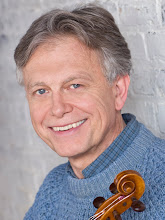 Meet Flaco (pictured). I saw Victor Medina's photo of his dog in a coffee shop and immediately fell in love with Flaco. I contacted Victor and he gave me permission to use his picture as a mascot for our shows. And, with his permission, here is how he tells the story of his dog, Flaco:
Meet Flaco (pictured). I saw Victor Medina's photo of his dog in a coffee shop and immediately fell in love with Flaco. I contacted Victor and he gave me permission to use his picture as a mascot for our shows. And, with his permission, here is how he tells the story of his dog, Flaco:“This is a picture of my dog, named "Flaco" (Spanish for ‘skinny’). In Mexico, where I grew up playing soccer in the streets, it was friendly to call someone ‘Flaco’ or ‘Gordo’ (fat). Seriously, it is okay and friendly to call your friend ‘Flaco’ or ‘Gordo.’ I’m an equine veterinarian working with my wife Dr. Nicole Eller-Medina in a practice and on our horse farm. Flaco is a Standard Poodle/Wired Hair German Pointer mix. I work part time in a small animal hospital, where we do some surgeries for the Tri-county Humane Society (spays and neuters). It happened that one day I got there and there he was. I asked who was the owner of such a cool dog and I was told that he was from the Humane Society and was available for adoption. That day he came back home with me. He is an absolutely wonderful dog who makes me laugh a lot. When I think about it, it was some kind of love at first sight. I took this picture a month after he came home and was playing with our other dogs. He was looking so funny that I had to get the camera and shoot some pictures.”
Children seem to know all about this, but, by the time we're adults many of us have had it shamed out of us. I'm saying I'm falling and have fallen for Flaco, and find joy in his unambiguous, playful and stout heart. Some athletes have this. Don't heroes in the folk tales have this?
And, I admire Victor and the tenderness of heart he has for Flaco. I figure that anything I can do to keep this heart alive in myself and others, I hope to do. Probably, those who have these hearts and wish to keep them must have fierce protection strategies. I think we have to look out for that nasty Lord Byron and his admirers. Some women fall for Mr. Byron and his ilk, and usually suffer for having done so. I think we must have our shield of virtue clearly in place, and, if anyone reaches to diminish or eat our hearts, we can do a quick Aikido move.
I can't attribute it (help me if you know where this comes from), but I think it is true that there are at least three times when it is important to be gullible. (1) When I am with my art, (2) when I am with my lover, and (3) when I am with my God. Artists, lovers and the pious I trust seem to know that nothing happens without this vulnerability. I think this is true.
I don't want to be Lord Byron. I don't want to be "cool" in the way he was cool. I don't want to be cynical, world weary or ironic. I want to be just like Flaco, and do just about everything with that feeling that Victor has for Flaco.
Dogs figure prominently in world folk traditions. I stumbled upon this Welsh folk reference to Gelert, and this story about Saint Guinefort, the dog revered as a saint by a never officially recognized "cult" of the Catholic Church, until it was suppressed in the 1930's.






